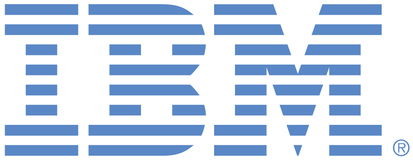
This is an IBM Automation portal for Integration products. To view all of your ideas submitted to IBM, create and manage groups of Ideas, or create an idea explicitly set to be either visible by all (public) or visible only to you and IBM (private), use the IBM Unified Ideas Portal (https://ideas.ibm.com).
Shape the future of IBM!
We invite you to shape the future of IBM, including product roadmaps, by submitting ideas that matter to you the most. Here's how it works:
Search existing ideas
Start by searching and reviewing ideas and requests to enhance a product or service. Take a look at ideas others have posted, and add a comment, vote, or subscribe to updates on them if they matter to you. If you can't find what you are looking for,
Post your ideas
Post an idea.
Get feedback from the IBM team and other customers to refine your idea.
Follow the idea through the IBM Ideas process.
Specific links you will want to bookmark for future use
Welcome to the IBM Ideas Portal (https://www.ibm.com/ideas) - Use this site to find out additional information and details about the IBM Ideas process and statuses.
IBM Unified Ideas Portal (https://ideas.ibm.com) - Use this site to view all of your ideas, create new ideas for any IBM product, or search for ideas across all of IBM.
ideasibm@us.ibm.com - Use this email to suggest enhancements to the Ideas process or request help from IBM for submitting your Ideas.

This idea was resolved in 12.0.8.0 where now node_server.conf.yaml tempmlate file at this version of ACE and above, contains the following force settings:
#forceServerHTTP: false # Set true to override and force unsecured HTTP on all HTTP/SOAP input nodes deployed in this server. Defaults to false.#forceServerHTTPS: false # Set true to override and force secured HTTPS on all HTTP/SOAP input nodes deployed in this server. Defaults to false.#forceServerHTTPSecurityProfile: '' # Set a security profile, {<policy project name>}:<security profile basename>, to override and force all HTTP/SOAP transport.# input nodes deployed in this server to apply the security set in the profile. Default is unset, so flow or node setting applies.#forceServerHTTPFaultDetail: 'specific' # Set the detail level for the default Error Handling fault messages returned by all HTTP/SOAPInput nodes. Default is 'specific'.# Set to 'specific' for full error & exception details to be included in the response. Set to 'generic' for error and exception details to be hidden and a generic error response to be sent.Status of idea updated to Delivered
Hi Ben,
The forceServer properties work also for a node owned integration server.
If you wish I can open a case for changing the default server.conf.yaml on a node owned server for these options and also create a comment on the documentation if that is a more appropiate route to follow.
I have to look again into the UserVariables tag.
Regards,
Jan
Hi Jan,
To clarify, it sounds like what you'd like is for us to document the use of forceServerHTTP, forceServerHTTPS and forceServerHTTPSecurityProfile in the node.server.conf.yaml template, so that those parameters are exposed for node-owned integration servers. On this understanding, I'm moving the status to FutureConsideration ... This should mainly be a testing activity (a quick sniff test suggests you can apply the settings yourself to the node.server.conf.yaml template and they should be picked up when the server is created and started).
Hi Ben,
I found an other tag that is only available in a SIS and could also be of use in a node owned is. That is the UserVariables tag.
Regards,
Jan Fluitsma
Hi Ben,
It is for the following settings:
Hi Jan, could you possibly please provide some more detail on this idea for enhancement as in its current state it is not going to be easy for us to interpret and assess for viability. Best Regards, Ben